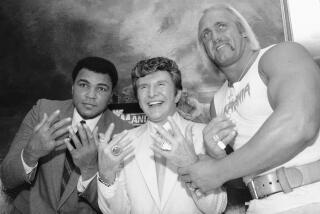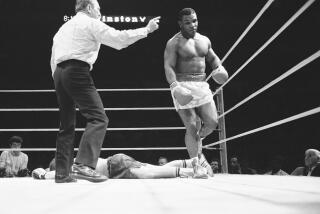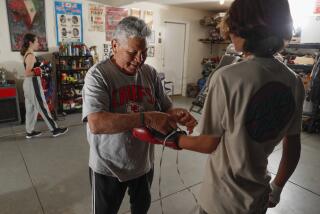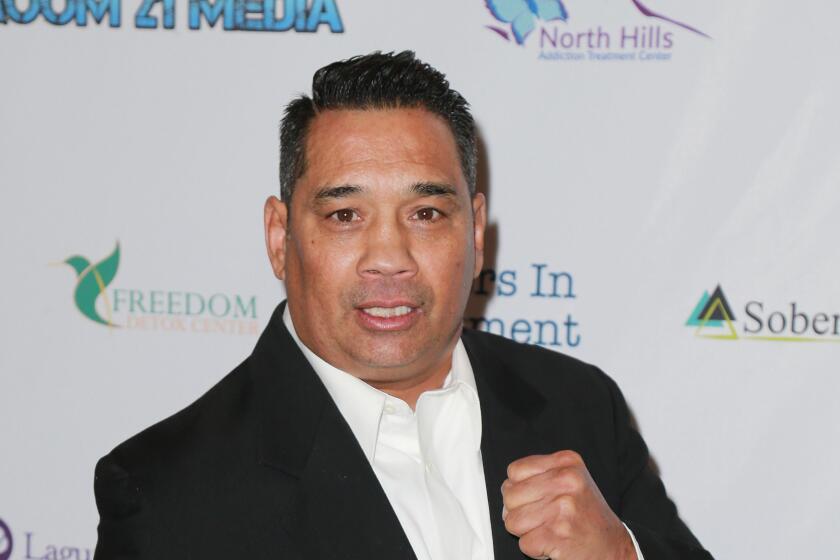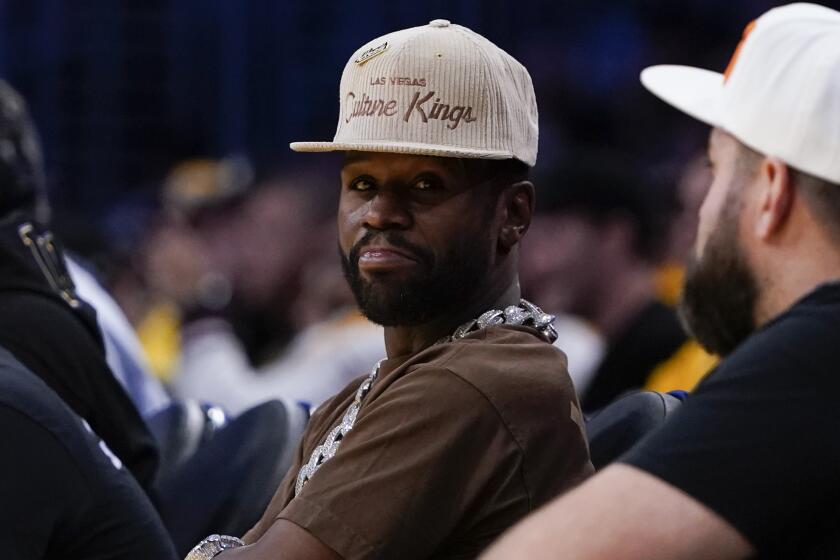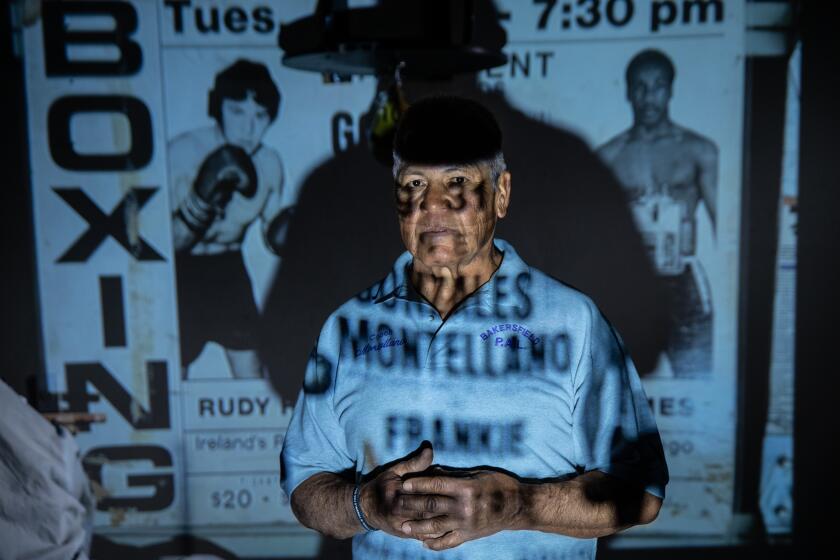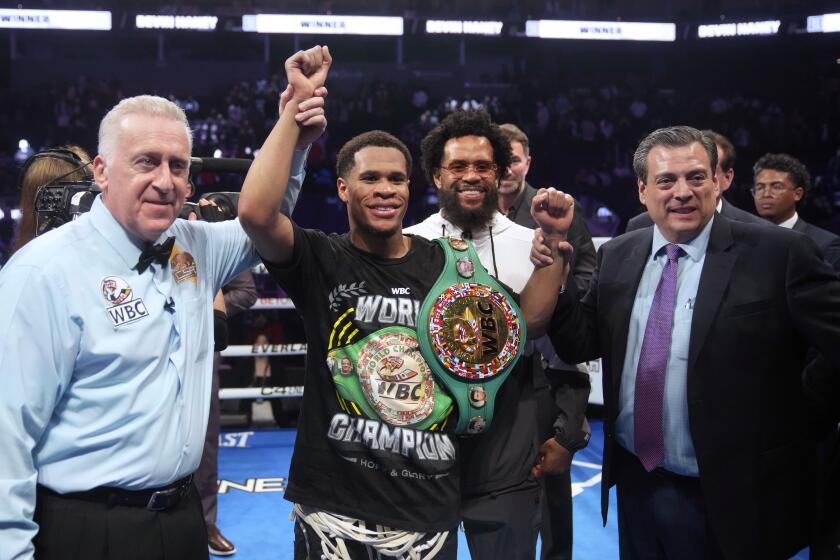Wladimir Klitschko is one fight away from tying Muhammad Ali as a three-time champion, or from retirement
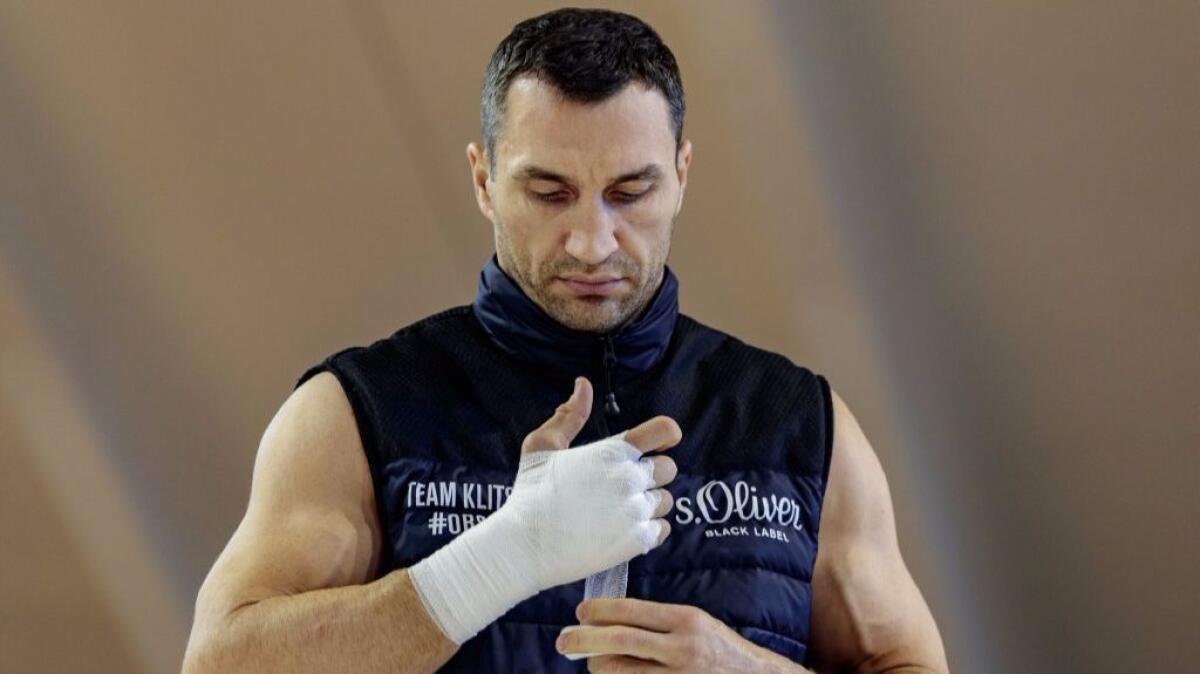
Former heavyweight world champion Wladimir Klitschko spent several secluded weeks training in the bitter cold of snowy Austria for his Saturday bout in London against unbeaten champion Anthony Joshua.
His camp in Austria was a far cry from Los Angeles, where he lives with the actress Hayden Panettierre and their young daughter.
The stakes for this fight are as extreme as the two locations he has called home over the last month. Klitschko will either move toward retirement or cement the considerable feat of tying Muhammad Ali as a three-time champion.
“How’s Los Angeles?” Klitschko recently asked a reporter almost forlornly.
Klitschko’s reign over the division of Joe Louis, Ali and George Foreman lasted for a staggering 15 years, and, to many, that was a dreary period.
His stoic confidence, almost robotic dominance and lack of qualified challengers in fights usually staged overseas made the Klitschko era an easy point of inclusion for those pitching the “boxing is dying” narrative.
He finally surrendered his belt 18 months ago to Tyson Fury in the most painful of his many ridiculed bouts often decided by jabs from a massive 81-inch reach.
Now, with England’s 2012 Olympic champion Joshua (18-0, 18 knockouts) ready to pronounce himself the division’s new king in a possible torch-passing event that will draw 90,000 to Wembley Stadium, Klitschko returns, his last stand fueled by the voices, memories and lessons found in reflection.
“I had this one-and-a-half-year break — the first time in 27 years — and I have thought of where I was, where I am today and where I’m going tomorrow,” Klitschko said.
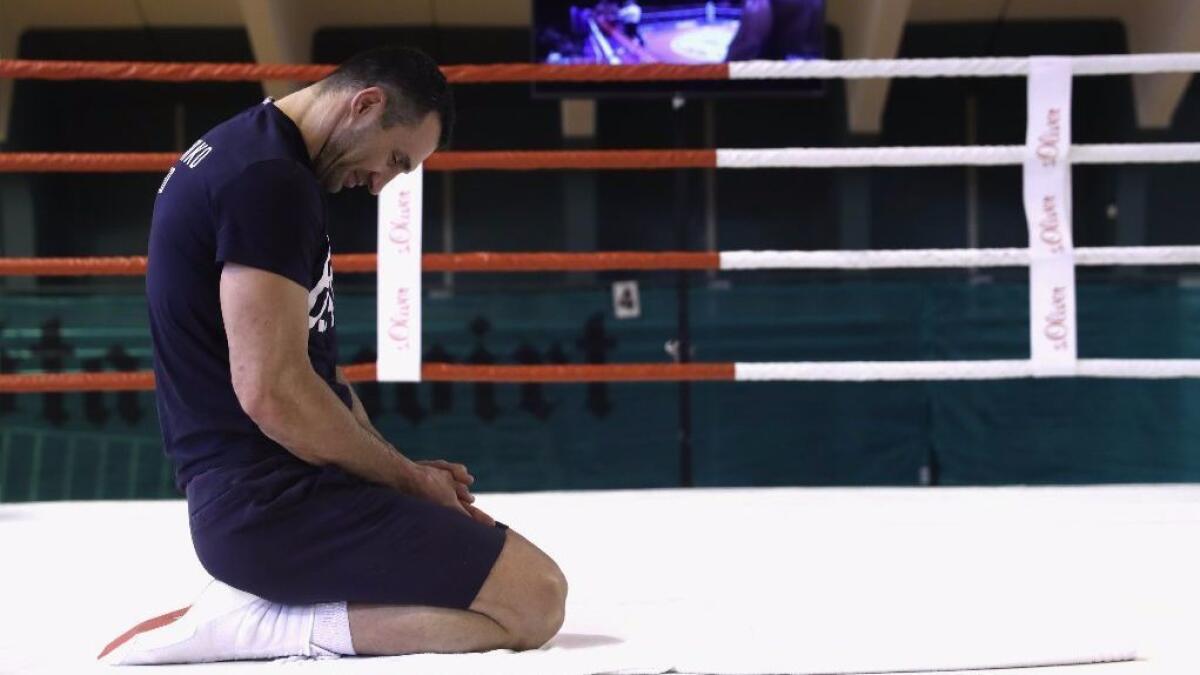
“I had time to think and it was good. I have a lot behind me. I never thought I’d be 41 and still fighting … fighting a guy who’s so good that I’m actually the underdog. This is when I perform better.”
For years, Klitschko missed finding a connection to fight fans, but he’s been passionate, humorous and vulnerable during this training camp, and if his fighting heart has gone unnoticed too often, with aged legs, slower reflexes and Joshua in front of him, displaying it late would be better than never.
Veteran boxing writer Jerry Izenberg defined the fight audience’s view of Klitschko like this: “They don’t know him. But when they do know him, they’re disappointed.”
Said Klitschko: “I do feel respect and love from the fans even though there are the opinions that I might be boring in the way I’ve fought — my style, or whatever. I’m very aware of my own presence.”
He started fighting at age 14 and yearned to follow and surpass his five-years-older brother Vitali, who also rose to be heavyweight champion.
“I put everything down as my friends would go to parties — smoking cigarettes, drinking beer,” Klitschko said. “I felt like a white raven. They were kind of laughing at me, but I was determined to be true to the sport and eventually I won that [1996] Olympic gold.”
Has he remained that squeaky clean all these years? “Trust me, I’ve tried it all,” Klitscko said. “I’m not as saintly as I look.
“Boxing opened the world for me. Sports made me a better person. I started traveling, meeting people, learning languages, visiting countries I’d always dreamed of. I never really loved sport, never truly loved boxing. I just wanted to show my brother that I could do as good as he.”
Chasing satisfaction from Vitali, now retired and serving as mayor of Kiev, Ukraine, was rooted in the brothers’ constant time together.
“My brother and I have true love for each other and we’re very competitive with each other,” Wladimir said. “My parents told him to take care of me when we boxed. So he was my father, my mother, my teacher, my mentor, my motivator.
“I always wore his clothes, never had my own. Whatever was not good enough for him anymore was perfect for me. It was bothering me. I just wanted to have my own. It’s interesting, though, because my brother made me who I am.”
Part of that identity was revealed in losses more than a decade ago to Corrie Sanders and Lamon Brewster.
“Look at the Brewster fight in 2004 … if you listen to the commentators, I started well, but then by the end [a fifth-round TKO loss] it was like, ‘He has nothing, he’s over the hill, he’s done,’” Klitschko said.
Instead, under the guidance of the late Emanuel Steward, his trainer for eight years, Klitschko (64-4, 53 knockouts) recaptured a belt in 2006 and won 22 consecutive fights. Saturday’s match with Joshua will be his 29th heavyweight title bout.
“They didn’t know they were talking before the most dominant run by a heavyweight champion in the world,” Klitschko said. “Who would have thought I would dominate from then for a long, long time after losing the way I lost? I was totally written off. … It showed that doesn’t mean you can’t bounce back.
“I’ve done it a couple times and I’m going to do it this time as well. I know how to do it. I’ve been there. I’ve done that. I know how to. I know this game inside and out. I’m determined.”
Follow Lance Pugmire on Twitter @latimespugmire
More to Read
Get our high school sports newsletter
Prep Rally is devoted to the SoCal high school sports experience, bringing you scores, stories and a behind-the-scenes look at what makes prep sports so popular.
You may occasionally receive promotional content from the Los Angeles Times.
